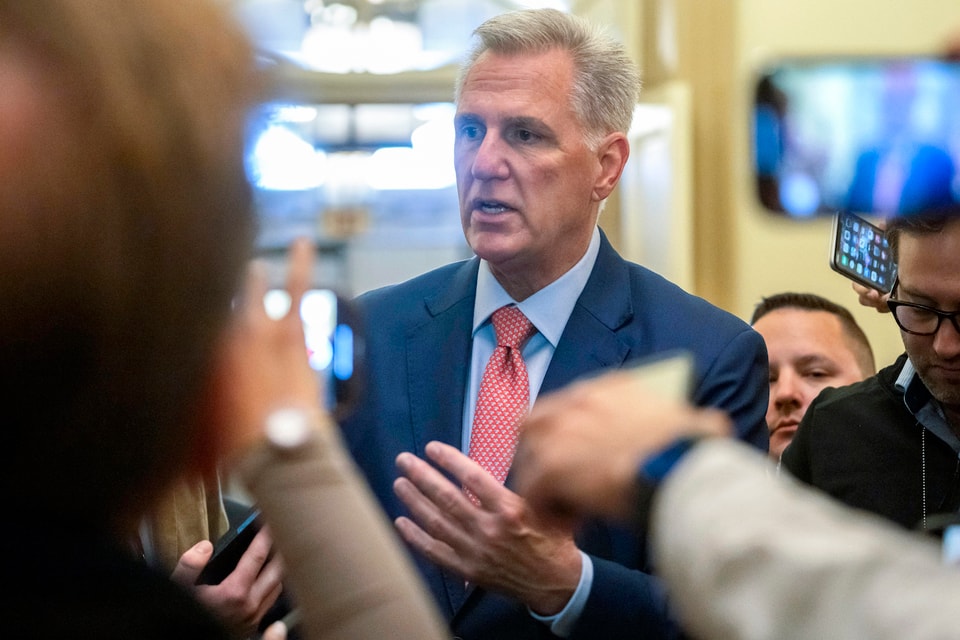Memo Published September 26, 2023 · 6 minute read
A Government Shutdown Could Impact Clean Energy Programs—and the Families and Businesses That Need Them
Alexander Laska

Takeaways
- Instead of sticking to the budget deal they agreed to earlier this year, House Republicans are sending us on a collision course with a government shutdown. This will have ripple effects across the US economy, and our federal energy programs are no exception.
- A prolonged government shutdown could cause delays to several important energy programs, including heating assistance for low-income families; grants and financing for clean energy, energy efficiency, and biofuels projects in rural communities; and energy innovation programs funding hundreds of research, development, and demonstration (RD&D) projects across the country.
- A shutdown will also delay implementation of new tax credits that will help American homeowners make their homes more energy efficient, thereby saving money on their monthly energy bills, as well as credits that will help establish new domestic industries around clean hydrogen, batteries and critical minerals, and sustainable aviation fuels.
Five Ways a Shutdown Could Impact Federal Clean Energy Programs
While we can’t know the exact impacts of a federal government shutdown ahead of time, we know from previous experiences that many important energy programs could be delayed in the event of a prolonged funding lapse. If Republicans drag out a shutdown, it could:
Leave families out in the cold: The Low Income Home Energy Assistance Program (LIHEAP) provides heating and cooling assistance to over 6.5 million households. The federal government releases funding to states to administer the program in early November of each year, just weeks after the start of the new fiscal year—and just as the weather is starting to get cold. The 2013 shutdown forced states across the country—from Kentucky to Michigan to Nevada—to halt energy assistance payments to low-income families until the government reopened.1 A prolonged shutdown could prevent low-income families from getting timely assistance on their home heating bills at a time when families are already struggling with high prices.
Postpone clean energy projects in rural communities: The US Department of Agriculture has several programs that help deploy clean energy in rural America. This includes the Rural Energy for America Program (REAP), which provides funding to agricultural producers and rural small business owners to deploy renewable energy systems or make energy efficiency improvements; and the Biorefinery, Renewable Chemical, and Biobased Product Manufacturing Assistance Program (“Section 9003”) which provides loan guarantees for developing and constructing facilities to produce advanced biofuels and other products derived from biomass.
While both of these programs are funded outside of the annual budget (REAP through the Inflation Reduction Act, 9003 through the Farm Bill), USDA relies on annual appropriations to staff these programs. This means that a government shutdown would delay review of applications for programs like these, pushing back the deployment of clean energy projects in rural America and postponing job-creating manufacturing projects in these communities.
Leave consumers and businesses in the dark on new tax credits: The IRS still needs to provide guidance for several of the tax credits created or updated by the IRA, and it plans to do so by the end of the year.2 This includes the energy efficient home improvement credit, which can provide homeowners with a 30% credit for making energy efficiency improvements like installing insulation, central air conditioners, and heat pumps. IRS will also publish guidance on the electric vehicle (EV) tax credit’s “foreign entities of concern” provision, which will help make sure EVs made with critical materials or battery components from countries like China and Russia do not qualify for federal incentives. Additionally, companies are awaiting guidance on how the IRS will implement tax credits for clean hydrogen production, clean power investments, production of sustainable aviation fuels (SAF) and other clean fuels, and manufacturing of clean energy components like critical minerals, batteries, and solar components. The IRS has said it will need to partially close if a shutdown happens—so the longer a shutdown drags on, the longer American families and businesses will have to wait for clarity on these new credits.3
Hold up funding for critical energy innovation projects: The Department of Energy (DOE) has 21 programs for which they expect to announce awards over the next few months, many of which were established through the Bipartisan Infrastructure Law (BIL).4 These represent $18.5 billion in federal funding for as many as 600 projects across the country. They include everything from regional clean hydrogen hubs and large-scale pilot projects for carbon capture technologies, to projects that make energy more reliable and affordable in rural and remote areas, to clean energy demonstrations on current and former mine land. At a time when we should be accelerating our investments in clean energy RD&D so we can compete and win in the global market for new clean energy technologies, a prolonged shutdown would push back the timeline for reviewing applications, selecting winners, and releasing funds (including those funded through the BIL if staff are furloughed).
Waste taxpayer dollars by delaying construction projects: DOE funds major construction projects by releasing tranches of funding as construction milestones are hit. If DOE is unable to pay the contractors because of a funding lapse, DOE will be in breach of contract. Not only will that disrupt important projects, but DOE will then have to find additional funding to extend the contract to make up for lost time. It’s reasonable to expect this could happen in a prolonged shutdown, as DOE is currently overseeing roughly two dozen construction and modernization projects in various stages at the national labs.5 These cost overruns are an inefficient use of federal funds and put job-creating construction projects—and the fundamental science that will unlock breakthroughs in clean energy—on hold.
Conclusion
Republicans could have avoided a shutdown if they had held up their end of the deal they made earlier this year. Instead, we face the risk of a prolonged shutdown that will delay home heating assistance, clean energy projects in rural communities, tax credits for American families and businesses, and innovation projects across the country. If Republicans are serious about helping families lower their energy costs and keeping American companies globally competitive, they need to stick to the terms that were already negotiated and keep the government open.
